Announcer:
The following program is a PBS Wisconsin original production.
Frederica Freyberg:
Wisconsin voters cast their ballots for local races in the spring elections, where hyper-partisanship is bleeding into nonpartisan local government. And Milwaukee elects its first African-American mayor.
I’m Frederica Freyberg. Tonight on “Here & Now,” Milwaukee’s newly elected mayor, Cavalier Johnson, joins us. Milwaukee organizer Angela Lang says now the work begins. Mordecai Lee forecasts for the fall. A closer look at partisan politics in school boards. It’s “Here & Now” for April 8.
Announcer:
Funding for “Here & Now” is provided by the Focus Fund for Journalism and Friends of PBS Wisconsin.
Frederica Freyberg:
After his landslide victory in Tuesday’s election, the new mayor of Milwaukee says priority one is to connect with state legislative leaders. 35-year-old Cavalier Johnson won with 72% of the vote over his challenger, Bob Donovan, who took 28%. Johnson is the first elected Black mayor of Milwaukee and the first millennial to run the city. Mayor Johnson joins us now from Milwaukee and, mayor, thanks very much for being here and congratulations.
Cavalier Johnson:
Thank you so much, Frederica. I’m happy to be here and thanks for having me.
Frederica Freyberg:
So what does it mean to you to be elected Milwaukee’s first Black mayor?
Cavalier Johnson:
So many things. I often reflect about my election night celebration, and one of the first people I spoke to that night was a nine-year-old African-American boy. And now a kid like him, who is growing up in the same sort of depressed, challenged neighborhoods that I grew up in in Milwaukee, now he can see his own reflection in the highest office in the city. I think that’s very powerful and sends a message to people across Milwaukee that no matter where you come from, no matter how much your parents make, no matter the color of your skin or the neighborhood you grow up in, there’s a place for you in Milwaukee, too.
Frederica Freyberg:
Indeed. Just after winning the election, you said your first order of business was to call Assembly Speaker Robin Vos and Senate Majority Leader Devin LeMahieu. Have you reached them yet?
Cavalier Johnson:
Yeah. The first thing I did when I came into office as mayor-elect was to call Robin Vos. Very first call that I made. And he did call me back later in the day. We had a great conversation. We do have a call into Senator LeMahieu as well but I’ve engaged with a number of other Republican legislative leaders as well. So I was serious about having the kind of capital and rebuilding the relationship between Milwaukee and Madison. We can’t move this city forward unless we have an actual and true working relationship, partnership with Madison and I want to build that.
Frederica Freyberg:
Do you feel as though that relationship had been broken?
Cavalier Johnson:
Yeah. I do believe the relationship had been broken. Unfortunately for the past over a decade, that broken relationship has put Milwaukee in a very precarious situation financially and in other aspects as well. It’s why it’s so critically important that we rebuild that relationship because Milwaukee is a value added to the state of Wisconsin. I’m working every single day with Republican leaders to bring the Republican National Convention right here to our state, right here to Milwaukee. But it wouldn’t be coming to Wisconsin, even though our state is the purpliest of purple states, it wouldn’t be coming here if Milwaukee was not here. So this city certainly is a value added and I think it’s high time we work with our partners in the legislature to have them realize that as well.
Frederica Freyberg:
So what specifically do you want from the Republican-led legislature?
Cavalier Johnson:
I want for them to recognize again the value added to the state that Milwaukee brings. I want them to understand that major metropolitan areas in the United States are anchored by cities like Milwaukee and those cities need additional revenues, need additional supports. Milwaukee is different than Marinette. It’s the reason why it’s the only first-class city in the state. Our infrastructure, our services, are stressed beyond the people who live here in the city with visitors and commuters every single day. We need additional revenues to be able to support those services that all those folks both expect and deserve.
Frederica Freyberg:
So you’re looking for more money, more support. Do you feel as though Milwaukee has been maligned by the leadership in Madison?
Cavalier Johnson:
I think there certainly has — had been relationships at play with the former leadership here and the leadership in the legislature and it’s time for those tensions to thaw so that the city and the state can work well together. Look, a strong, prosperous growing Milwaukee is good for the entire state of Wisconsin. I realize that and I think in time, we’ll be able to get to the point where legislative leaders realize that too.
Frederica Freyberg:
I read you want to change gun laws to help stem violence in Milwaukee. How do you want to change gun laws?
Cavalier Johnson:
Well, unfortunately at the local level, we don’t control gun law. We just react to it. In one of the more recent years in Milwaukee, our police department collected more guns per capita off the streets than in New York. That shouldn’t be. But that’s something that’s out of our control. Again, we just respond to it. We stop folks who have gun but there are still so many guns out there. I don’t want for people who are going to cause death, harm and destruction in our neighborhoods, people who shouldn’t have guns in the first place, to get their hands on them as easily as they do. That’s why it’s important again for us to rebuild this relationship with Madison so that we can have gun laws in place that work to make sure that people who shouldn’t have those guns don’t get access to them. So I’m asking for common sense gun reform. This is coming from not somebody who has been just a victim of gun violence myself or in my family, but somebody who also respects the Second Amendment and somebody who enjoys going to ranges and shooting guns, too. We should be able to do this thing in a commonsense way, come to some commonsense solutions here to make sure that we’re allowing people to have access, but also protecting our communities at the same time.
Frederica Freyberg:
A key focus of the campaign was on violent crime in your city. Are more police part of your fix notwithstanding concerns about over-policing of neighbors?
Cavalier Johnson:
I think it’s important to have an adequate number of police. I certainly do. That’s why over the course of the past year I fought to accept a federal grant that had become controversial but I worked behind-the-scenes to work the votes on the common council in order to get it passed. Today there’s a diverse class of police officers, African-Americans, Latinos, Asians, men, women, mostly city residents on our streets protecting and serving the citizens of Milwaukee. Put forward funding to make sure we had dollars available to recruit and bring on 200 police officers to replace the roughly similar number that are retiring because they’ve reached 25 years. I want to have an adequate number of police in Milwaukee. But unfortunately, we’re in a position where paying for police is not sustainable for Milwaukee, not with the current revenue structure that we have. So we’re going to need partnership at the state to make sure we can afford to pay for the police that we have. And if we have any additional police officers, afford to be able to pay for those as well.
Frederica Freyberg:
You said upon winning that it is a new day for Milwaukee. How so?
Cavalier Johnson:
It’s a new day in Milwaukee because we’re actually trying to build a new relationship, a working relationship with our partners in the state. We have a goal to make sure that people who live in Milwaukee have access to neighborhoods that are safe across the city, not just in the prosperity neighborhoods and downtown or those that hug upon Lake Michigan. But I want safety in all of our neighborhoods in Milwaukee. I want to make sure that there’s prosperity in the neighborhoods across Milwaukee, too, the neighborhoods that I grew up in. Because I understand based on my life experience that when the least of these in our community have opportunities to have economic prosperity and less financial stress, that they become stable in their own lives, they pass that stability onto their children, so their reactions when they’re in the streets and schools is different. When we get a critical mass of that happening in our neighborhoods, that’s how you get to true public safety. So it’s a new way forward and I’m happy to be the one leading the charge.
Frederica Freyberg:
Cavalier Johnson, thanks so much.
Cavalier Johnson:
Thank you.
Frederica Freyberg:
One of Milwaukee’s leading community and election organizers did not endorse Cavalier Johnson in his run for mayor. Why not? We asked Angela Lang, executive director of Black Leaders Organizing for Communities and she joins us from Milwaukee. Nice to see you again.
Angela Lang:
Thanks for having me.
Frederica Freyberg:
Why didn’t BLOC endorse in the mayor’s race?
Angela Lang:
Yeah. This was not a decision that we made lightly but given a lot of the conversations that we heard on doors, specifically about how both candidates talked about policing was a challenge for us and that wasn’t something that we could get over. And so in the primary, we released a statement staying out of the primary, but we’re very clear that we wanted to leave the door open in case people wanted to engage in a discussion of how we feel safety should be in our communities. And unfortunately, we didn’t hear anything from either campaign. So we had to move forward. There’s not much we could do. We want to move forward now that Mayor Johnson is elected. Through his historic win, we look forward to the future just as much as he did. So we look forward to working with him and best believe Monday morning we will be sending an email to the office to request a formal meeting so we can start to work together to make a Milwaukee where everyone can thrive.
Frederica Freyberg:
What is your reaction to the first elected Black mayor in your city?
Angela Lang:
You know, a lot of people have said it’s about time. And I share that sentiment. It’s long overdue and very curious and very anxious and excited to see how Mayor Johnson also works with people like the chairwoman of the Milwaukee County Board, Marcelia Nicholson, and our County Executive David Crowley, who are also young Black folks as well. Lucky to see all their leadership and really excited to see how they work together to bring their diverse perspectives and experiences to all of Milwaukee. So I’m excited and I think that kind of shatters a ceiling a little bit and that’s the standard moving forward. We need to make sure we continue to have representation.
Frederica Freyberg:
A lot of the campaign focused on violent crime in Milwaukee. When you meet with the mayor, what would you like to tell him about what you would like to see around that?
Angela Lang:
The first thing that we are hearing from our community and our team and those that have been directly impacted by policing and crime and violence is that people want to see investments into their communities. They don’t want to see more and more resources taken from their communities, given to law enforcement. People want to have access to safe and affordable housing. People want to have access to reliable transportation, a living wage job. I believe if we’re investing in those areas and investing into thriving communities and beautiful parks and greenspace and things like that, then that is what will make our neighborhoods safe and making sure that we have the resources to invest in our communities.
Frederica Freyberg:
Do you expect that you will be able to have accord on those issues with the mayor?
Angela Lang:
I hope so. You know, we hope that we all understand that crime is a challenge in our city, but we have opportunities. It’s a new day. There’s new representation. And there’s now an opportunity for us to do things differently, to actually dream. And so we look forward to dreaming with Mayor Johnson with his historic win of how we can make sure everyone kind of understands and feels represented now, too.
Frederica Freyberg:
Now, Mayor Johnson wants to reconnect with the legislative leadership. What do you think of that priority?
Angela Lang:
Absolutely. I think that is something that is super important. We understand how the legislature treats Milwaukee. So many times there’s a lot of anti-Milwaukee sentiment that comes out of the capitol. So I wish him well on that endeavor. I think it’s a big task given our political landscape at the moment but it’s something that needs to happen. It needs to be done. I’m glad he’s making it one of his top priorities.
Frederica Freyberg:
People are talking a lot about it being a new day in Milwaukee, including yourself. What would a new day look like for you and your organization?
Angela Lang:
A new day for us feels that our community is being listened to, that our communities are being invested in and not over-policed, that we are meeting people that have gone through challenges through a place of love and community restoration and wrapping our arms around folks that may have had challenges instead of throwing them into the carceral system and really kind of providing that hope and that light at the end of the tunnel for so many community members that have been left behind.
Frederica Freyberg:
What is it like right now in Milwaukee?
Angela Lang:
It’s challenging. I’ve often said that Milwaukee is a beautiful place that inspires me and breaks my heart. And you see where there’s a lack of investment in some of our communities. But you see the resilience and the beauty of the people here. And so we are going to continue to fight for our communities because we know that we deserve to be in a thriving, healthy and safe community.
Frederica Freyberg:
So lastly, what’s your reaction to the confirmation of Ketanji Brown Jackson as supreme court justice?
Angela Lang:
An emotional reaction. Very, very excited. Also another first long overdue. I actually just released an op-ed this morning reflecting on it with the Wisconsin Examiner and specifically how she was treated as a Black woman and to watch that hearing and see how she was treated was terrible. But to finally know we’ve made history and we’re moving this country one step further is very exciting and lots of good feelings and emotions around her official confirmation now.
Frederica Freyberg:
All right. Angela Lang, thanks very much for joining us.
Angela Lang:
Thank you.
Frederica Freyberg:
What does the Wisconsin spring election portend for the fall election? How to measure that with such low turnout? We talk now with UW-Milwaukee Political Scientist Mordecai Lee. Thanks for being here. Nice to see you.
Mordecai Lee:
A pleasure. Thank you.
Frederica Freyberg:
What does this past Tuesday’s spring election portend for the fall?
Mordecai Lee:
I’m not sure it portends very much statewide. Afterall, this was the first election, April election since 2014 where there was nothing on a statewide ballot. There was no supreme court. There was no constitutional amendment. And when it happened, when that happened in 2014, only about half a million people voted in the select judge races, court of appeals. So it’s hard to draw any statewide conclusions. But in terms of southeast Wisconsin, I think there’s some pretty strong numbers and I think it’s good news for Democrats and good news for Republicans based on geography, which is sort of what Wisconsin politics is turning into.
Frederica Freyberg:
Could you unpack that a little bit, please?
Mordecai Lee:
Well, the race for mayor, even though it’s nonpartisan here in the city of Milwaukee, was just a blowout for the de facto Democratic candidate, Cavalier Johnson, and his opponent, former alderman Bob Donovan, was pretty openly affiliated with the Republican Party. I think this is almost like what’s happened to state supreme court races. There’s a de facto Democrat and a de facto Republican. It’s almost like there’s a “D” and a “R” after their names because it’s so thinly disguised. When you’ve got such a blowout of an election, more than two to one, that’s just really a landslide. So for Democrats in Milwaukee, it’s an indication that the city is becoming more democratic. I think the most important trivia tidbit is that the old white south side, the European ethnics, blue collar, Reagan Democrats, which really anchored the career of Mayor Henry Maier, who was the mayor for 28 years, that this election on Tuesday, was the last hurrah for the old south side. They’re gone. They’ve retired. They moved to the suburbs. The cops no longer are under a residency requirement. So the old south side is no longer that white conservative stronghold that opposed open housing with Father Groppi. And that Milwaukee is a majority-minority city and Hispanics are as important and whites are fading. When you look at the suburbs–
Frederica Freyberg:
Go ahead.
Mordecai Lee:
When you look at the suburbs, I think it was really great news for Republicans. There was a Court of Appeals race for sort of the collar counties that surround Milwaukee County. Milwaukee County is its own Court of Appeals district. Republicans did very well. Again, there was a race that was thinly disguised as a partisan race. And the Republican won, but de facto Democrat lost but I think what’s so significant is after Trump showed weakness in Waukesha County and Ozaukee County, that sort of disappeared. Everybody went back home. Again, it was a decisive win for Republicans along with the county exec down in Kenosha County. So they did very well.
Frederica Freyberg:
I’m glad you picked up with that because that actually was what I was going to ask you about, that Court of Appeals race. But now, after this election is done, all eyes turn to primary races for U.S. senate and governor in Wisconsin. I just wanted to get your take on this, what you make of Tommy Thompson potentially getting into the race and running down to Mar-A-Lago to meet with Donald Trump?
Mordecai Lee:
I think this will really shake up the race. He loved being governor and he was great and successful as a governor both in terms of governance and in terms of politics, getting elected to four, four-year terms, although he didn’t finish the last one. But he just loved being in charge. I think based on his experience as the interim president of the UW System, it really showed that he’s still got all the juices going and he still really likes to solve problems. In that respect, not a performative Republican, but a problem-solving Republican. And so I think he’s dying to run. Being 80 years old is no longer an issue given the age of former president Trump and the age of President Biden. So I think he’s likely to run. The question is if the Democratic Party has changed out from under his feet in the period since he left to go to George W. Bush’s cabinet. So going to Mar-A-Lago is an indication that Tommy is still on his game. He now understands the importance of Trump in Wisconsin politics.
Frederica Freyberg:
As for Democrats vying for the U.S. Senate in the primary, what breaks through for any of those many candidates?
Mordecai Lee:
I think what’s going on in the Milwaukee TV market, which probably is something some of your viewers don’t get as much access to, is that we’ve been having ads against Ron Johnson since last year. And Ron Johnson has been up on the air in Milwaukee TV stations since he declared at the turn of the year and now very consistently. So what we’re seeing is heavy TV advertising in the Milwaukee area. They’re really fighting it tooth and nail.
Frederica Freyberg:
Mordecai, more to come on all of this as we head into August and then November. Thanks for joining us now. We will talk with you soon.
Mordecai Lee:
Thank you.
Frederica Freyberg:
In the name of parental rights, Republicans pushed way down the ballot in the spring election working to elect conservatives who disfavor things like masking for COVID and discussion of such things as race or gender identification in the classroom. GOP candidate for governor Rebecca Kleefisch even endorsed 48 school board candidates, 34 of whom won across the state. School board elections are officially nonpartisan and our next guest who researches school boards thinks they should stay that way. UW-Oshkosh Professor Michael Ford joins us now. Thanks for being here.
Michael Ford:
Thank you for having me.
Frederica Freyberg:
What is the biggest argument for why school board elections should be nonpartisan?
Michael Ford:
Yeah. By far, it’s about effectiveness. If you look at our state and federal government, it’s based on the structure of partisanship. That’s how we determine committee assignments. That’s how we determine who is the speaker. One of the big strengths of local nonpartisan races is we’re not dependent on having that partisan conflict. When you do introduce that partisan conflict, it creates structural coalitions that automatically derail the governance process before it even can begin.
Frederica Freyberg:
What is your reaction to what you call our culture wars bleeding into local government?
Michael Ford:
Yeah. It’s really unfortunate because it’s totally divorced from what’s really going on in the classroom. I think we really saw this with the debate over Critical Race Theory. Certainly the GOP picked up on this as a way to score some political points and reengage some suburban voters that might have been turned off by Trumpism. But at the end of the day, it’s pretty divorced from the reality of what goes on in school districts.
Frederica Freyberg:
So you spoke to it a little bit, but how does partisan conflict as you call it kind of hurt the work of school boards and most importantly, the children in classrooms?
Michael Ford:
Yeah. Well, democratic governance is built on this idea of conflict. So conflict is good. Even politics is okay at the local level. But it becomes a problem when it’s divorced from actual policy or tasks and it becomes strictly about what side are you on. And where that’s really damaging is it prevents school boards from being responsive to the public that they serve and ultimately those policies they create and the way they manage the superintendent, that impacts what happens in the classroom. When we’re stuck in these patterns of nonproductive conflict, we’re not addressing real issues.
Frederica Freyberg:
True enough. As to the election results in school board races across the state, the effort worked to install the Rebecca Kleefisch-endorsed candidates in the Milwaukee suburbs, but results were mixed in other parts of the state. What does that say about the effectiveness of such a push?
Michael Ford:
I don’t think it’s very effective. I think part of it is local elections have a law of diminishing returns with spending. There’s only so much you can do. So many mailings you can do and if you look at the balance of those results, conservatives tended to do well in conservative areas and liberals tended to do well in more liberal areas. Really the only take-away I saw there was suburban Milwaukee showing there is some angle there for trying to reattract those voters who may have been more conservative but turned off by Donald Trump back to the GOP fold.
Frederica Freyberg:
So you say the effort was to reinforce their base ahead of the midterm elections. Did that work?
Michael Ford:
I think it did. I think you’re going to see, in the midterm elections, some of these broad appeals to parental freedom. I think those specific messages about masking, about Critical Race Theory didn’t really resonate, because they were too specific but this broad appeal to parental freedoms certainly plays to a GOP base that’s all in on school choice.
Frederica Freyberg:
Is this the first time we have seen this kind of thing, going down-ballot as we described it?
Michael Ford:
This is certainly uniquely intense. There were other times in Wisconsin, certainly after Act 10, there was a lot of democratic involvement in local races and when Common Core was a debate 10, 15 years ago we saw a little bit of this. But certainly the intensity right now is unique.
Frederica Freyberg:
Was it just Republicans this time who took this tack or did Democrats and the teachers union also politicize these school board races?
Michael Ford:
Democrats absolutely did. If you look at the overall numbers, the numbers were not as large for the Democrats, but certainly they did push their agenda. And I think part of this is frustration with their inability to make gains at the state level.
Frederica Freyberg:
So what should parents with children in schools know about these kinds of political efforts around school boards?
Michael Ford:
Well, I think it’s so important for parents to educate themselves in what’s actually going on in their kids’ schools, what’s actually going on in the classroom.
Frederica Freyberg:
All right. Professor Michael Ford from Oshkosh, thanks very much.
Michael Ford:
Thank you so much for having me.
Frederica Freyberg:
It was off. Then it was on. Now it’s off again, for now. We’re talking about a controversial survey asking undergraduates questions about free speech on UW’s 13 universities. One question from the survey, for example, asked whether the student ever experienced a negative consequence like getting a lower grade for disagreeing aloud with a professor over a controversial topic. Some provosts objected to the survey and it was pulled but then the UW System reinstated it and the interim chancellor at UW-Whitewater resigned this week over its use. That’s when the system pulled back once again and delayed the survey. The center at UW-Stout running the survey is funded by the conservative Charles Koch Foundation and the Menards family, major Republican donors. Republicans have pushed for strict rules for students and faculty who say they punish students who express conservative views. The survey was to have been delivered to students’ inboxes Thursday but now will go out in the fall. PBS Wisconsin is part of UW-Madison.
For more on this and other issues facing Wisconsin, visit our website at PBSwisconsin.org and then click on the news tab. That’s our program for tonight. I’m Frederica Freyberg. Have a good weekend.
Announcer:
Funding for “Here & Now” is provided by the Focus Fund for Journalism and Friends of PBS Wisconsin.
Search Episodes
Related Stories from PBS Wisconsin's Blog

Donate to sign up. Activate and sign in to Passport. It's that easy to help PBS Wisconsin serve your community through media that educates, inspires, and entertains.
Make your membership gift today
Only for new users: Activate Passport using your code or email address
Already a member?
Look up my account
Need some help? Go to FAQ or visit PBS Passport Help
Need help accessing PBS Wisconsin anywhere?

Online Access | Platform & Device Access | Cable or Satellite Access | Over-The-Air Access
Visit Access Guide
Need help accessing PBS Wisconsin anywhere?

Visit Our
Live TV Access Guide
Online AccessPlatform & Device Access
Cable or Satellite Access
Over-The-Air Access
Visit Access Guide
 Passport
Passport





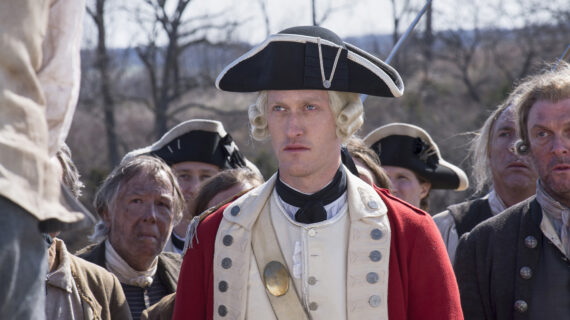
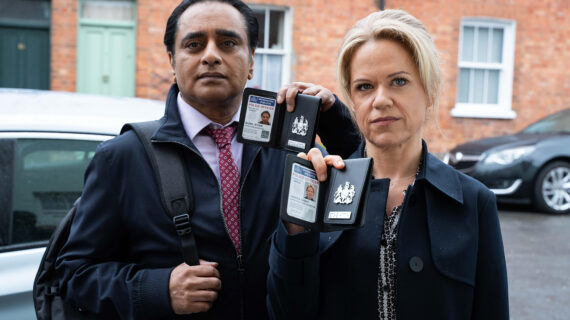
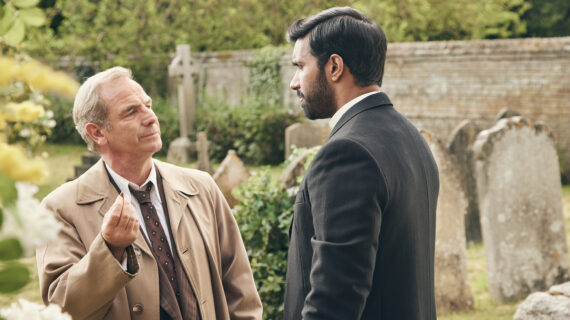
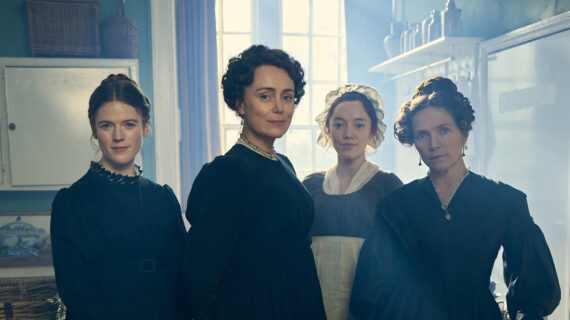

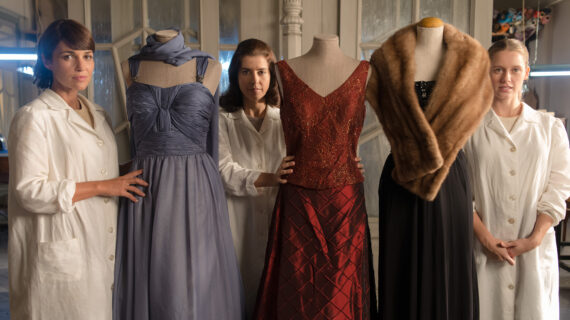
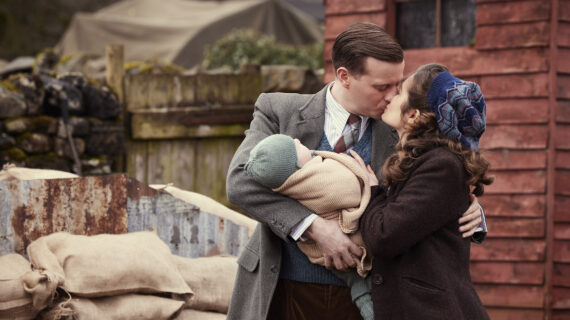

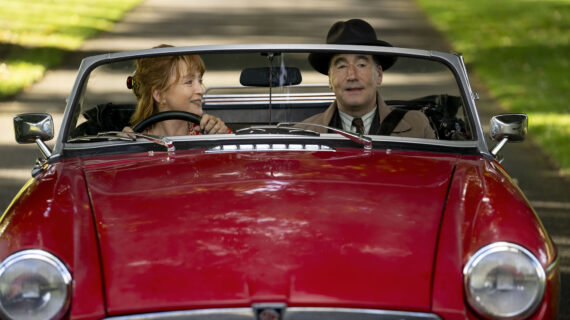
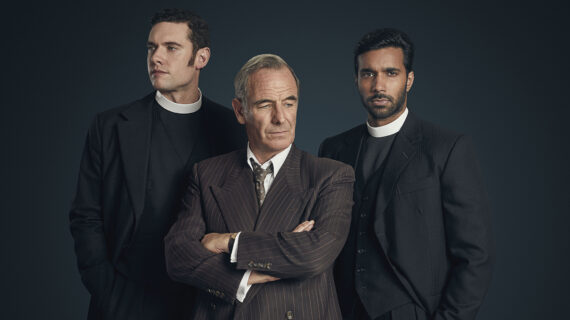
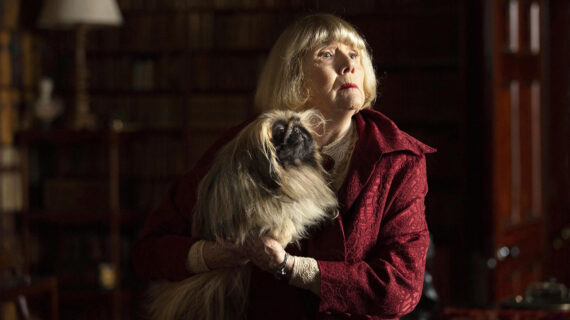

Follow Us